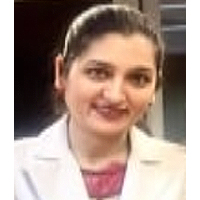Impact of Balanced Lifestyles on Childhood Development: A Study at Crèche
Published on: 9th January, 2024
Introduction: In our fast-paced world, children’s dietary habits and behaviour are increasingly concerning, with a tendency toward indulging in sweets and snacks. Insights are derived from observations of 20 children at a crèche facility.Temptation of sweets: Children’s inherent attraction to sweet and salty snacks challenges maintaining a healthy diet. Excessive consumption can lead to health issues, recognizing the pivotal role parents and caregivers play in guiding children toward healthier choices.Significance of a balanced diet: A well-rounded and nutritious diet is crucial for a child’s physical and mental development. Providing fruits, vegetables, whole grains, and lean proteins is essential.Role of activities: Diversifying a child’s routine with engaging activities is a powerful strategy to redirect their focus from unhealthy snacks. Sports, arts, outdoor play, and educational games promote physical fitness, creativity, and cognitive development, contributing to a well-balanced lifestyle.Strategies for encouraging healthy choices:• Lead by example: Modelling healthy habits inspires children to adopt similar behaviour.• Educate about nutrition: Imparting knowledge about the nutritional value of foods equips children to make informed choices.• Make healthy options accessible: Stocking the kitchen with nutritious snacks makes it convenient for children to opt for healthier alternatives.• Limit unhealthy choices: Setting clear limits on sugary snacks helps children develop moderation and self-control.• Create a fun and active environment: Fostering an enjoyable environment involves family outings, games, and making exercise a natural part of daily life.Results: Encouraging results were observed among the 20 children. Two children, aged around 12, demonstrated awareness of healthy habits. Excluding these two, others showed positive changes in behaviour towards sweets and snacks through activities and counselling.Conclusion: Maintaining a balance between a child’s consumption of sweets and snacks and engaging in diverse activities is crucial for overall development. A combination of nutritious choices and engaging activities guides children toward a path of health and happiness
Death Wishes, Aging Patients, and Euthanasia
Published on: 12th March, 2024
The authors are searchers in psychopathology and communicate here about the dead wishes in relation to euthanasia. In Europe, the question comes regularly up to know if the law should be changed concerning the prohibition of euthanasia. The health system obeys progressively a modern idea of comfort and the “good life”. The authors are psychotherapists and their methodology is based mainly on phenomenological psychology, psychoanalysis, and psychopathology. Statistics of the French Ministry of Health will support their statements. Different clinical experiences with young patients, aging patients, or near-to-death patients are crossed and compared to those marked by heavy experiences like rape or amputation. The unbearable nature of their suffering makes them ask frequently to stop the pain. They would prefer being dead. This contribution examinates this kind of demand to find a helpful position for the caregiver and the patient. We should consider that near-death patients may often be at the climax of anxiety and depression is likely to switch over to dementia. In asking to finish with life, this purpose may change one day to another – sometimes it just highlights the wish to see things changed. The position of society and the medical staff has a high influence as well. Asking for euthanasia shows the variety of the same words that have different meanings from a medical, psychological, or psychopathological viewpoint. The purpose is to consider these aspects with the patient’s demand.
A Qualitative Study of Caregivers of Children Living with HIV/AIDS in Ghana: Diagnosis History, Health-seeking Behaviour, and Care Expectations
Published on: 5th April, 2024
Caregivers of Children Living with HIV/AIDS experience severe burdens in Africa amidst unmet needs while seeking care from hospitals. This study aimed to explore the diagnosis history, health-seeking behaviour, and care provided by hospitals and whether the services meet caregivers’ expectations. We used a qualitative approach and conducted individual in-depth interviews among purposively sampled caregivers of children living with HIV/AIDS from three hospitals. We achieved data sufficiency after interviewing nine participants. Audio-recorded interviews were transcribed verbatim and thematically analyzed manually through Collaizi’s steps. Four themes developed including; history of pregnancy and poor HIV testing, effective care for caregivers and CLWH, attitude of healthcare providers, and unmet expectations of care. Healthcare providers showed positive attitudes towards caregivers and provided services (counselling, dispensing Anti-retrovirals, health monitoring, and coordination of clinical care). Expectations bordered on financial support (for food, education, health care), and treatment for opportunistic infections. Findings indicate gaps in HIV voluntary testing for pregnant women, enrollment in Prevention of Mother to Child Transmission (PMTCT), and unmet needs. It is imperative to improve coverage of testing for pregnant women and efforts made to meet their needs. Financial support, provision of food security, and assistance for caregivers are essential for care.
Caregivers’ Nutritional Awareness and its Impact on Pediatric Health Outcomes: A Study at Wad-Albasheir Health Center, Sudan
Published on: 3rd April, 2025
Background: Nutritional awareness among caregivers plays a crucial role in ensuring optimal pediatric health and development. This study assesses the level of nutritional awareness among caregivers and examines its association with demographic factors.Objectives: This study aimed to assess the knowledge and awareness of caregivers regarding dietary advice and complementary feeding for children under five years at Wad-Albasheir Family Health Center, Um-Bada locality.Methods: A cross-sectional study was conducted among caregivers in selected healthcare facilities. Data were collected using a structured questionnaire and analyzed using SPSS version 23. Descriptive statistics and chi-square tests were used to evaluate associations between variables.Results: The majority of caregivers demonstrated moderate awareness (60%), while 22.5% had low awareness and 17.5% had high awareness. A significant association was observed between education level and awareness (p < 0.05). Employment status also influenced awareness levels, with employed caregivers showing higher knowledge scores.Conclusion: Nutritional awareness is a key determinant of pediatric health. Strengthening educational programs targeting caregivers can improve child nutrition outcomes.
Bidirectional Aspects of Well-being of Patients and Main Caregivers after Neurosurgery
Published on: 7th May, 2025
Objectives: Hospitalization following a head injury is associated with high rates of disability that have a strong correlation with depression, anxiety, and low self-esteem. Well-being is related to life satisfaction, quality of life, happiness, personal growth and flourishing, competence, self-acceptance, positive relationships, and autonomy. The well-being of patients and their primary caregivers is important when a patient is left with impaired mobility after neurosurgery. The aim of this study is to examine whether the well-being of patients and their primary caregivers will differ before and after neurosurgery, and whether well-being differs between patients with motor disability (WMD group) and those without, compared to those who are not - NMD group (non-motor disability).Methodology: 123 patients and their main caregivers were recruited. Of these, 62 were in the before neurosurgical group, 31 Patients and 31 caregivers. 61 in the after neurosurgical group, 30 Patients and 31 caregivers, of which there are 16 from WMD group and 15 from NMD. Main outcome measures: Two analyses of Variance (ANOVA) were conducted: for WMD and NMD separately. The results reveal a significant decrease in wellbeing for both, patient and main caregivers, but a stronger decline in well-being was observed among WMD, as indicated by a larger effect size (η² = 0.74) compared to the NMD (η² = 0.38). In addition, no significant effect between group and time of measurement was found, indicating that the decrease in wellbeing was not different among patients compared to their main caregivers. Conclusion: The findings highlight the multifaceted impact of neurosurgery on well-being, particularly for patients who remain with motor disabilities and their primary caregivers.The decline in well-being after neurosurgery highlights the need for improved social support and the importance of developing treatment programs that can help ease the process of coping with these phenomena and provide appropriate support for both patients and their primary caregivers.




